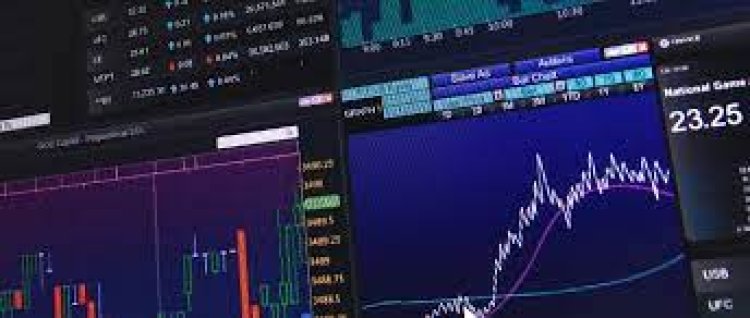The Role of Derivatives in Modern Finance
Share this Post to earn Money ( Upto ₹100 per 1000 Views )

Derivatives have become an integral part of modern finance, offering investors a range of tools to manage risk, speculate, and improve market efficiency. This article covers the basics of derivative trading and explains why a Demat account is crucial for engaging in this financial field. Understanding these fundamentals will help you navigate the complexities of derivatives more effectively.
What Are Derivatives?
Derivatives are financial contracts whose value is derived from an underlying asset, such as stocks, bonds, commodities, currencies, or market indexes.
Types of Derivatives
Futures Contracts: Agreements to buy or sell an asset at a future date at a predetermined price.
Options Contracts: Provide the right, but not the obligation, to buy or sell an asset at a specific price before a certain date.
Forward Contracts: Customised agreements between two parties to buy or sell an asset at a future date for a price agreed upon today.
Swaps: Contracts to exchange cash flows or other financial instruments between parties.
Importance of Derivatives in Modern Finance
Risk Management
One of the primary roles of derivatives is risk management. Companies and investors use derivatives to hedge against potential losses from adverse price movements in the underlying assets.
Speculation
Derivatives also offer opportunities for speculation. Traders can take positions in the market to profit from anticipated price movements. This can involve significant risk but also the potential for substantial returns. Derivative trading allows speculators to leverage their investments, controlling prominent positions with relatively small amounts of capital.
Market Efficiency
Derivatives contribute to market efficiency by providing more information about future price movements and improving liquidity. They allow for price discovery, helping markets to reflect more accurate values for the underlying assets.
Access to Otherwise Inaccessible Assets
Derivatives enable investors to gain exposure to assets or markets that might be difficult to access directly. For instance, an investor can use currency futures to invest in foreign exchange markets without directly holding foreign currencies.
The Role of a Demat Account in Derivative Trading
A Demat account (dematerialised account) is essential for trading in the financial markets. It holds financial securities in electronic form, making buying, selling, and managing investments easier without physical certificates.
Benefits of a Demat Account in Derivative Trading
Safety and Convenience: A Demat account eliminates the risks associated with physical certificates, such as loss, theft, or damage. It also simplifies the process of trading and holding securities.
Efficient Settlement : Transactions in derivatives are settled electronically, ensuring quick and error-free processing.
Easy Access to Diverse Assets: Through a Demat account, investors can easily trade in a wide range of derivatives, including futures and options, across various exchanges.
Lower Costs: Holding securities in a Demat account reduces the costs of handling physical certificates, such as stamp duties and handling charges.
Practical Applications of Derivatives
Corporate Hedging
Companies use derivatives to manage financial risks related to their operations. For example, an airline might use fuel futures to hedge against rising oil prices, ensuring cost stability for its operations.
Portfolio Diversification
Investors use derivatives to diversify their portfolios, spreading risk across different assets and markets. Options and futures allow them to take positions in commodities, currencies, and other non-traditional investments.
Speculative Strategies
Traders employ various speculative strategies using derivatives to capitalise on market movements. For example, options can be used to implement techniques like straddles and strangles, which profit from volatility regardless of the market's direction.
Conclusion
Derivatives play a pivotal role in modern finance by offering tools for risk management, speculation, and enhancing market efficiency. Understanding derivative trading and the necessity of a Demat account is crucial for anyone looking to participate in this dynamic market. As financial markets evolve, derivatives will remain integral to investment strategies and risk management practices.














